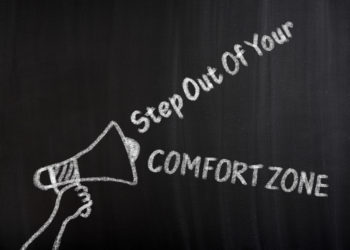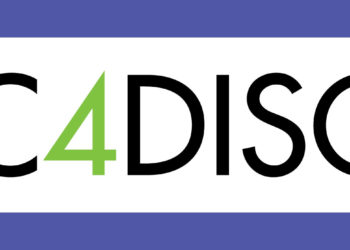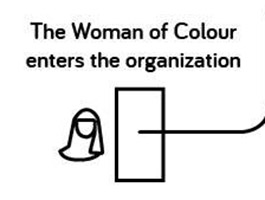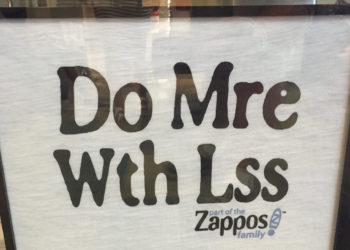Okay, 2019, let’s get moving. There are, alas, still too many examples of journalism, panels, conferences, and book lists with what my dad called “pale male syndrome.” A pale male engineer himself, he long ago made the sensible observation that diversity creates more stable and sustainable systems — as well as being equitable and just. Last year Scholarly Kitchen Chefs and guests posted regularly about these issues, including Jasmine Wallace on the necessity of breaking out of comfort zones to tackle diversity and inclusion and Alison Muddit on Breaking the Silence on #MeToo in scholarly publishing. A powerful post “On Being Excluded: Testimonies of People of Color in Scholarly Publishing,” and a follow-up second part, was anonymous at the request of the participants – an indicator of how difficult and sensitive the situation can be. These were among the most read posts of 2018, another measure of the importance of inclusion and diversity. One pattern in the posts is the relationship between talking about the problem, and taking action. As Jasmine noted, “Far too often… we do way too much talking about diversity and inclusion, and don’t take enough action to make diversity or inclusion happen.” A concern with identifying positive action was the prompt for other posts, and several Chefs, including Jasmine, cited the formation of the Coalition for Diversity and Inclusion in Scholarly Communications.
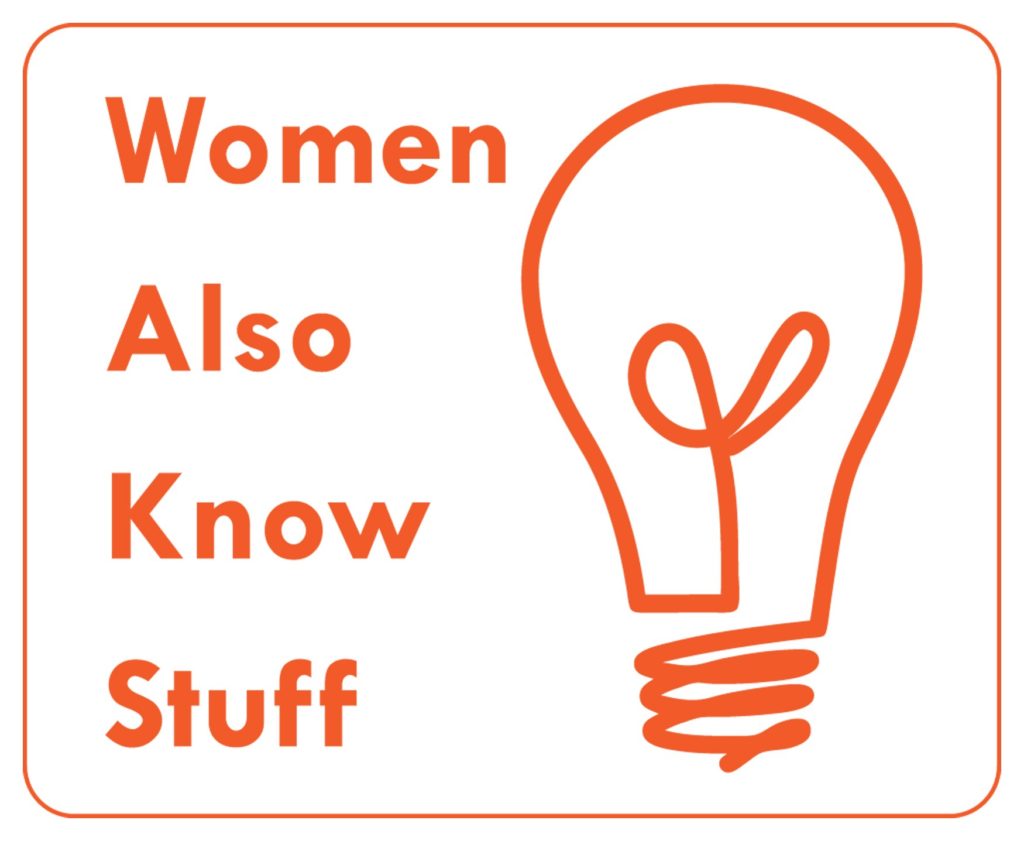
Tackling one aspect of diversity and inclusion, both accessible digital technology and professional habituation to using online resources have spurred a host of projects to represent and promote women’s research and expertise. These projects provide resources that call attention to the problems of bias, and make locating women experts easy. The projects that include searchable databases aim to take the “but I don’t know any women in that field / with that experience / doing that kind of research / who has written about that” excuses out of the equation for conference organizers, editors, journalists, and more. The more ingrained the use of such resources becomes, the more and better progress we’ll make in consulting, quoting, including, inviting, reading, and citing women.
Women Also Know Stuff (WAKS) was among the projects mentioned in a spring 2018 editorial by David Leonhardt of The New York Times. When he declared “I’m not Quoting Enough Women,” Leonhardt referenced an influential 2013 essay by journalist Adrienne LeFrance in which she described having taken the measure of even her own sources and found that “balanced gender representation is going to take some serious work.” Women Also Know Stuff is designed to promote and publicize “the work and expertise of scholars in political science who identify as women.” In February 2016 the founding editorial board wrote an article for the Washington Post describing the ongoing imbalance in media analysis and coverage of the U.S. elections, and proposing a solution. They started with an example from Vox, a classic of the genre many will recognize, asking “6 political scientists” their views on Bernie Sanders’s chances as a general election presidential candidate. Among that six? Not one woman or person of color. They further cited the homogeneity of authors on Post blogs. They talked about implicit bias as a key factor. And they announced their new searchable database of women experts that could offer “online “binders full of women” in political science.” (The binder joke was very 2012, but it still resonates for some of us!) In the last three years, Women Also Know Stuff has developed a powerful social media game, with over 20,000 avid followers on Twitter, has an impressive swag department, and now lists over 1600 political scientists on their website.
Women Also Know Stuff has also directly inspired other groups, including Women Also Know History (WAKH) a media and curriculum tool I co-founded with Keisha N. Blain, a historian of 20thcentury United States, and a professor at the University of Pittsburgh (also Senior Editor of Black Perspectives, the blog for the African American Intellectual History Society, which I profiled for the Kitchen in 2017) and Emily Prifogle, a JD and a PhD student in history at Princeton specializing in legal history, social movements, and the history of the American Midwest. Women Also Know History began with email exchanges among the three of us, and with Christina Wolbrecht, a Professor of Political Science at Notre Dame, editorial board member of Women Also Know Stuff (and crucially, the friend of a friend) about whether an homage site in history might be feasible and how much we could learn from the site structure and experience of WAKS. The WAKS team was fully supportive, and gave us some insight into their site development and their governance. The program committee for the Berkshire Conference of Women Historians in June of 2017 gave us a late breaking session slot. The session produced a lively discussion among a very engaged group of attendees, and we launched our social media right there. After a year in development, we launched the website in June of 2018. Profiled in the Chronicle of Higher Education and elsewhere, Women Also Know History now lists over 3,300 historians.
Sourcelist was another of the projects mentioned in Leonhardt’s “I’m not quoting enough” pieces. Launched last spring by scholars associated with the Brookings Institution, Sourcelist is ultimately a hub for associated lists of women experts but has begun with a focus on Women in Technology Policy. Susan Hennessey, a Brookings Fellow in National Security Law, announced Sourcelist in a post on the Lawfare blog, where she is Executive Editor. She noted that the purpose of Sourcelist “is to facilitate more diverse representation by leveraging technology to create a user-friendly resource for people whose decisions can make a difference,” but also that the project team hoped to “take away the excuse that diverse experts couldn’t be found to comment on a story or participate on a panel.” Unlike the Women Also Know sites, Sourcelist does not have an associated social media presence.
Cite Black Women began in 2017, when Anthropology Professor Christen Smith of the University of Texas created and starting selling “Cite Black Women” t-shirts at a meeting of the National Women’s Studies Association (the proceeds are used to support the Winnie Mandela School in Salvador, Bahia, Brazil). Smith’s impetus was frustration with seeing and hearing work that should be citing women scholars, particularly the scholarship of black women; Cite Black Women is a call to recognize and call out politics of citation, and the experiences of citation erasure that has been described and analyzed by generations of black feminists. The social media work that followed with this simple yet profound statement landed Smith and Cite Black Women on Essence magazine’s list of Trending Topics for April, 2018. Also profiled in Times Higher Education last year, the Cite Black Women Collective launched their website in late December, 2018 along with a biweekly podcast that “will feature interviews and coversations about the critical praxis of citing black women, its history, its potential, and its future.” As Smith told me, “seeing the ways this movement has been inspiring to others has been so rewarding.”
The commonalities and divergences in these projects are suggestive. They are undertaken by women professionals as volunteer labor, in addition to and not as part of their regular responsibilities. They are all inspired by the potential for digital resources to address an important deficit in their field and / or discipline. They are all collaborative. (As Wolbrecht noted when I emailed a set of questions about Women Also Know Stuff and she shared them with the WAKS board, one board member created a google doc and board members volunteered to answer different questions.) All of the projects welcome all who identify as women; as Christen Smith noted, “when we say women we mean all women, period.”
Financial and institutional support for the projects varies; none of the projects has a regular, ongoing source of support. WAKS board member Samara Klar at the University of Arizona where the website is hosted notes, for example, that a lot of the early expenses for the project came out of pocket or from individual faculty research budgets. This is the case for WAKH, too, though we have also used research funds to support a paid project team member who started as a graduate assistant. WAKS was recently awarded an NSF grant that will cover operating costs for the short term, such as site maintenance, graduate assistance, as well as some program evaluation and planning work. As the project grows, political science conference organizers have been reaching out to ask for WAKS representation and swag, and are providing support to facilitate that.
All of these projects are looking to expand their reach. Finding ways to support women in these fields, through curriculum materials and social media training, for example, a focus for WAKH in the new year, or expanding into new areas, as Sourcelist intends to do, or with multimedia as Cite Black Women is doing, is as important as making women’s work more easily identified.
All of the projects are thinking, too, about how to assess their impact. For now, robust anecdotal evidence of enthusiasm for their work and extensive use of the sites is a useful measure. At WAKH we hear regularly about women contacted for interviews, panels, and to participate in projects because the keyword search makes finding experts in any given area so easy. WAKS and Sourcelist report the same; Stella Rouse of the WAKS board and the University of Maryland confirmed that “we have strong anecdotal evidence that people are very aware of the initiative.” Both WAKS and WAKH are eyeing more formal impact assessments.
Perhaps most significant, all of these projects are predicated on the notion that both calling attention to the need for inclusion, and creating professional resources, is important. Deeply ingrained biases might not yield, but unthinking professional habits and practices that reproduce bias just might. Susan Hennessey of Brookings says of her experience with the Sourcelist that the “problem is largely one of effort, not intent. Very few people are actively trying to exclude women from the conversation; they just aren’t trying hard enough. Resources like Sourcelist help with the fundamentals, but I still hear complaints from conference organizers (both male and female) who say “I contacted two women and both said no.” My answer is “Well, then you have to contact 3 or 4 more. Here is a list of 650 names, but you’ve got to do your part.”
Check out these resources:
Cite Black Women is at citeblackwomencollective.org, on Twitter at @citeblackwomen, and is also on Facebook and Instagram.
Sourcelist is at sourcelist.org.
Women Also Know History is at womenalsoknowhistory.com, on Twitter @womnknowhistory, and is also on Facebook.
Women Also Know Stuff is at womenalsoknowstuff.com and on Twitter @womenalsoknow . The WAKS site lists related projects in other fields, including those like WAKH that they directly inspired.
Discussion
9 Thoughts on "Yes, Women Also Know: Online Resources Identify and Highlight Women Experts"
Thank you – there are some terrific resources in here, and I look forward to makings use of them!
Thanks Karin. Another resource to add to the list is “Women Working in Openness” – https://fyoaw.vickysteeves.com/, which includes Twitter handles and a map that has a satisfying geographical spread.
What great resources! A testament to “if you make the right thing easy, people will do the right thing!” Thanks for pulling all these together!
Great resources! Please add “Women in Data Science” by @DataScienceRenee, https://twitter.com/BecomingDataSci, Twitter list: https://twitter.com/BecomingDataSci/lists/women-in-data-science (1714 members)
Nit pick: Mitt Romney’s “binders” quote is from 2012, not 2016!
Thanks to all of you for comments and for more resources! I’ve been doing the good work of citizenship on jury duty today, so sorry for being a bit slow. How could I have thought “binders” was 2016? Possibly because it feels it was more than one election cycle ago. I’ll fix that!
This is wonderfully right and useful. A hundred years from now (a thousand?) maybe folk will wonder why such specializing was so necessary. But it was. It is.
I’m watching to see if this approach, from the Digital Library Federation call in 2018, becomes more widespread: “… organized panels with 4 or more speakers will be given a dedicated session of 55 minutes. “Manels”—all-male-identifying panels—will not be accepted into the conference …” (https://forum2018.diglib.org/call-for-proposals/)
Great article. This is another fantastic resource – “50+ women to follow in Computational Social Science” https://ocean.sagepub.com/blog/2018/10/8/womentofollow-in-computational-social-science
